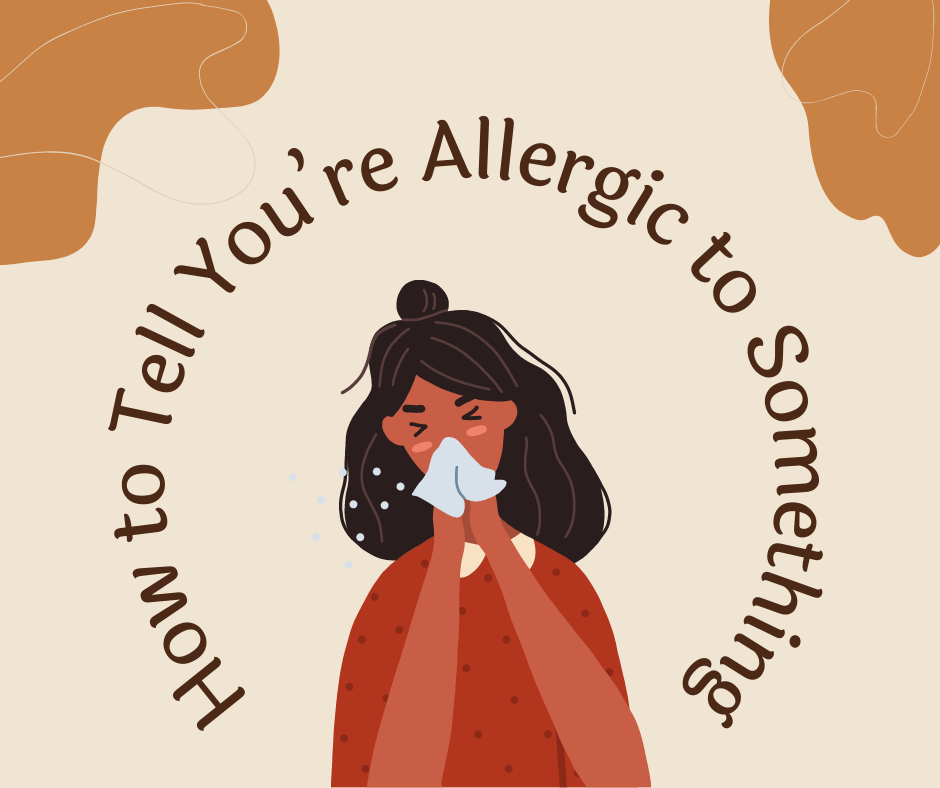

An allergy is a reaction of the immune system to something called an allergen. These allergens are typically harmless to most people but for some reason isn’t to you. Recognizing that you’re allergic to something can be a bit challenging, but there are some common signs and symptoms to look out for.
Symptoms of Allergies
1. Rash or Hives
A skin rash or hives can be a sign of an allergy. Hives are raised, red, and itchy welts that can appear anywhere on the body. Or, if for some reason your whole body is suddenly itching all over, that could be a sign that your body is having an allergic reaction too. Thankfully, this itching is rarely life-threatening, but it can be a pain in the butt.
2. Sneezing and Runny Nose
Sneezing, a runny nose and congestion might be symptoms of hay fever that’s also known as allergic rhinitis. It’s important to address these symptoms at night because they can affect your sleep and your ability to breathe.
3. Itchy or Watery Eyes
Allergic conjunctivitis can cause itching, redness, and watery eyes. It’s important to not rub your eyes as it can make the pain even worse.
4. Swelling
Swelling of your face, lips, tongue, or throat can be a severe symptom of an allergy and may be a sign of anaphylaxis, a life-threatening reaction. Here, your airways can swell until there is no space for air to pass through.
5. Chest Tightness and Difficulty Breathing
Chest tightness, wheezing, and difficulty breathing can be symptoms of asthma, which can be triggered by an allergy. At this stage, you should have an inhaler ready to help widen your airways. If it worsens, it can develop into a life-threatening blockage of your airways.
6. Nausea, Vomiting, and Diarrhea
Digestive symptoms, such as nausea, vomiting, and diarrhea, can be a sign of a food allergy. These should be easy to diagnose—simply watch what you eat and note whenever you experience these symptoms.
7. Eczema
Eczema is a type of skin condition that can be caused by an allergy. It typically presents as dry, itchy, and scaly skin. It is rarely life-threatening but can be very irritating to deal with and can be a source of embarrassment for those who have it.
8. Headaches
Some people may experience headaches as a result of an allergy.
Conclusion
If you suspect that you have developed an allergy, it is important to see a healthcare provider. They will be able to perform tests to confirm the presence of an allergy and determine the specific allergen. In some cases, a skin prick test or blood test may be required.
It’s also really important to monitor your symptoms, especially when they had started occurring. This information will let your healthcare provider know how to make a diagnosis and also come up with the best possible treatment for your allergy.
Treatment for allergies can vary depending on the type and severity of the reaction. In some cases, avoiding the allergen may be sufficient to control symptoms. Other treatments may include medications, such as antihistamines or corticosteroids, and in severe cases, immunotherapy (allergy shots).
In conclusion, recognizing that you’ve developed an allergy requires paying attention to your symptoms and seeking the advice of a healthcare provider. With the right diagnosis and treatment, most people with allergies can successfully manage their symptoms and enjoy a good quality of life.

